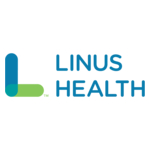92% of participants want to know about Alzheimer’s early according to new Linus Health report
BOSTON–(BUSINESS WIRE)–#alzheimers—Linus Health, a digital health company focused on transforming brain health, today announced findings from a new survey of 1,000 older adults in the US about their perspectives on Alzheimer’s and other dementias. The survey explored their understanding of dementia and modifiable risk factors; preferences around diagnosis and testing; real-life healthcare experiences in primary care; and likely actions as new treatments become available. The results, published in the Patient Voices on Alzheimer’s and Other Dementias Report, show that older adults overwhelmingly want to take more control of their cognitive health, but face gaps in awareness, coaching, and cognitive testing – underscoring the need for more proactive cognitive care and new ways to empower primary care providers (PCPs) to deliver it. Survey insights indicate that this need will only grow as new treatments, such as Leqembi™ – recently granted accelerated FDA approval for early-stage Alzheimer’s – come to market.
Already affecting more than six million people in the US alone, the findings show that Alzheimer’s and other dementias represent the top health concern for adults as they age – ranking higher than cancer or heart disease. A full 92% of respondents would prefer to learn of Alzheimer’s early, even before symptoms appear, with the most common reasons being the desire to plan ahead for long-term healthcare needs, begin treatment with available pharmaceuticals, and make lifestyle changes to protect brain health (all with 70% or higher responses among those preferring early diagnosis). Respondents also expressed interest in taking more control of their cognitive health more generally, with 95% indicating they would make lifestyle changes if they knew they were proven to help prevent or delay dementia risk.
Despite fear of dementia and a desire to do more to mitigate it, the survey responses tell a different story about the status quo in US healthcare. Among the survey group of adults 65 years and older, less than 20% had received lifestyle recommendations from their PCP to support cognitive health in the past few years and only 23% had ever had a formal cognitive assessment. Correspondingly, 75% expressed interest in learning more from PCPs about ways to reduce their risk. And, as new treatments clear FDA approval, more than 1 in 4 respondents said they would definitely or very likely request testing for early Alzheimer’s even if they are asymptomatic (with another 16% somewhat likely to do so).
Other notable findings include:
- Less than a quarter of respondents have a high degree of confidence about their knowledge of the common symptoms of early-stage Alzheimer’s / cognitive impairment.
- Almost 70% say they rarely or never bring up cognitive healthcare questions or concerns with their PCPs.
- While most respondents are aware of the roles of brain-challenging activities (84%) and physical activity (69%) for reducing dementia risk, less than half are aware of the role sleep, alcohol, and socializing can play.
“Dementia is the number one cause of disability in old age, and robs us of our very essence. Society faces a formidable challenge given the concerning projections about dementia and its impact. This survey reveals important gaps in the status quo that we can close to make a big impact, help individuals and their families, and promote societal well-being,” said Alvaro Pascual-Leone, MD, PhD, Chief Medical Officer of Linus Health. “With new treatments gaining approval and evidence on lifestyle interventions expanding, there is grounds for new hope and it’s great to see that older adults want to be proactive about their cognitive health. The findings also reinforce the criticality of better empowering PCPs – those best-positioned to advise on prevention and spot early signs of cognitive issues.”
Linus Health sponsored the survey of 1,000 people aged 65 and older in the US, which Wakefield Research conducted in January and February of 2023. 950 surveys occurred online and 50 by phone. All participants had not been diagnosed with dementia before.
To access more of the findings, download the Patient Voices on Alzheimer’s and Other Dementias Report here.
About Linus Health
Linus Health is a Boston-based digital health company focused on transforming brain health for people across the world. By advancing how we detect and address cognitive and brain disorders – leveraging cutting-edge neuroscience, clinical expertise, and artificial intelligence – our goal is to enable a future where people can live longer, happier, and healthier lives with better brain health. Linus Health’s digital cognitive assessment platform delivers a proven, practical means of enabling early detection; empowers providers with actionable clinical insights; and supports individuals with personalized action plans. We are proud to partner with leading healthcare delivery organizations, research institutions, and life sciences companies to accelerate more proactive intervention and personalized care in brain health. To learn more about our practical solutions for proactive brain health™, visit www.linushealth.com.
Contacts
Media
Karina Stabile
Senior Account Executive
Aria Marketing for Linus Health
516-317-5835



